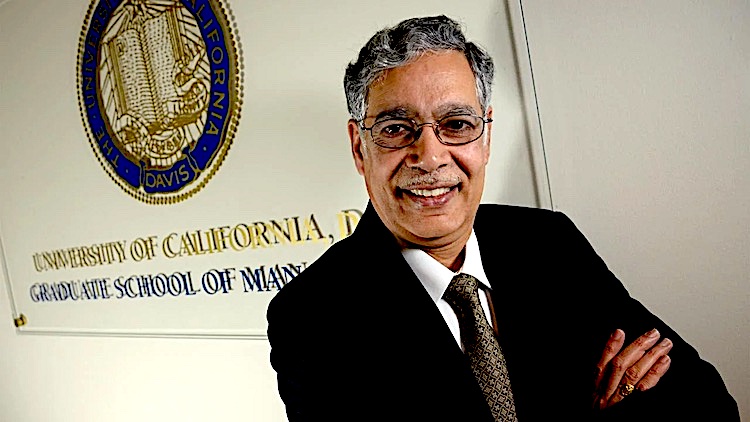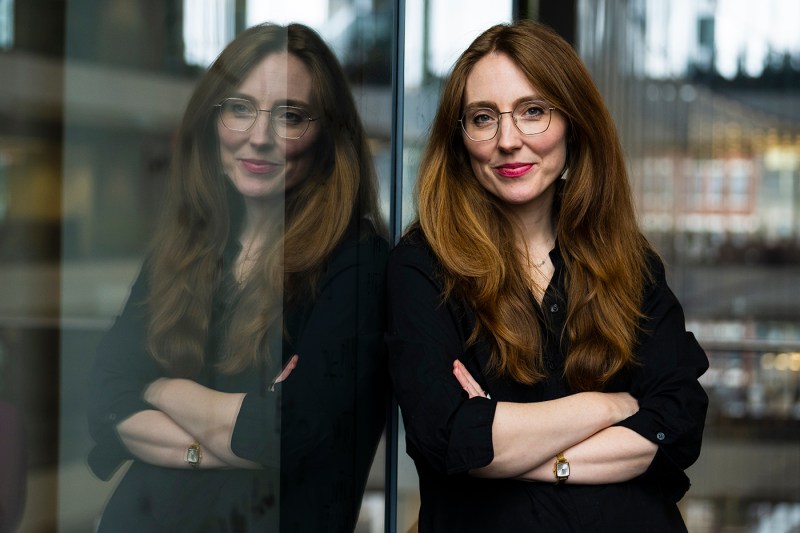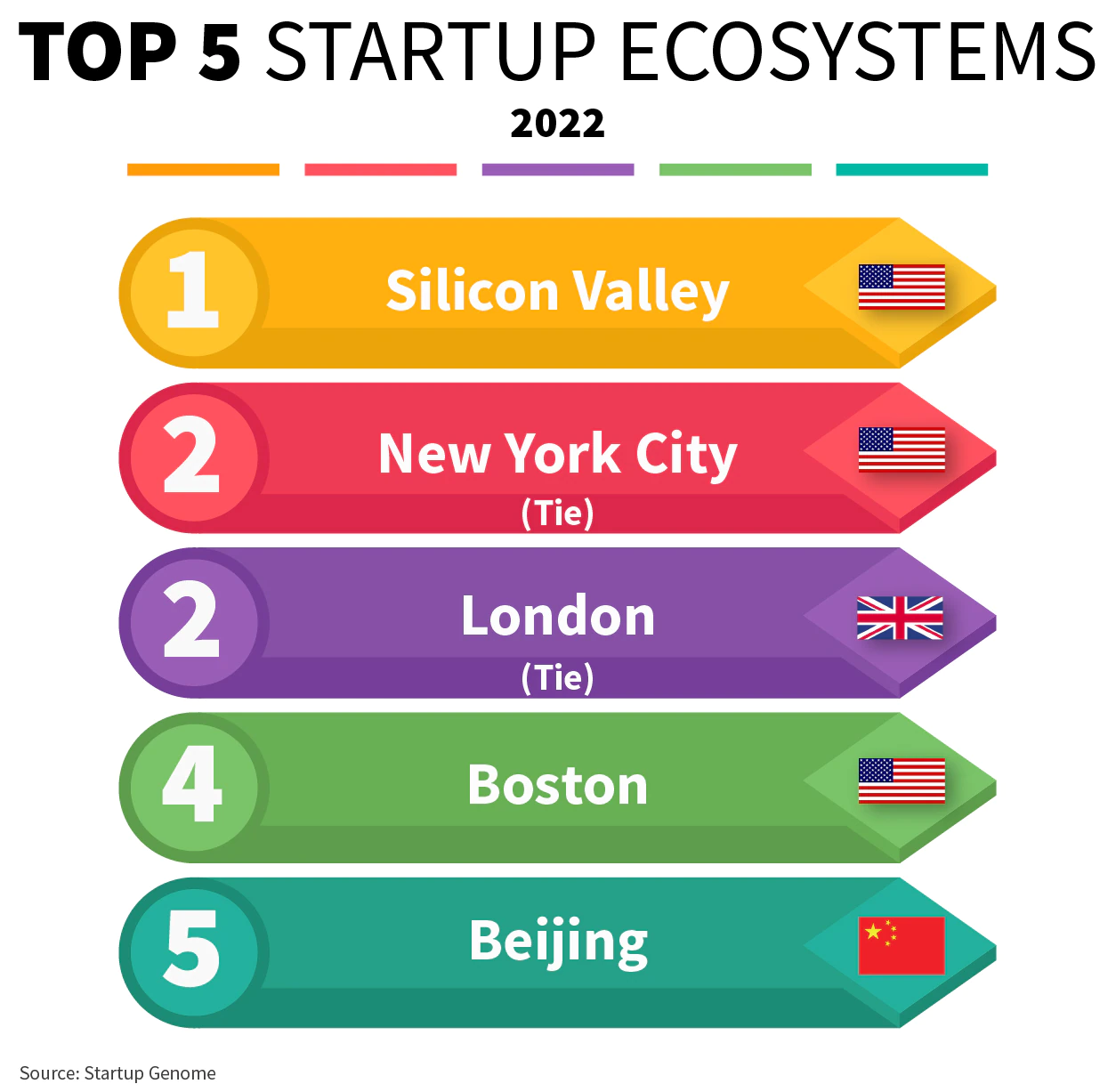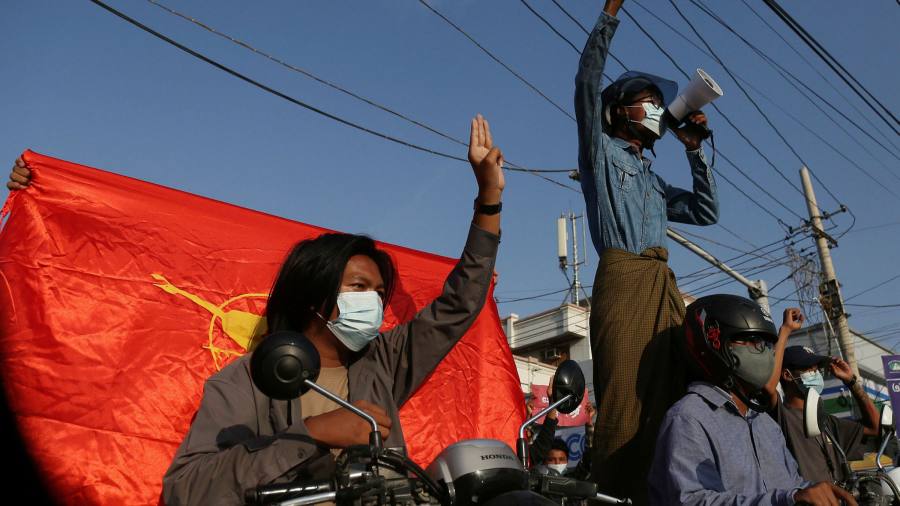[ad_1]

UC-Davis Graduate School of Management Dean H. Rao Unnava
When H. Rao Unnava arrived for his first day as the new dean of the Graduate School of Management at the University of California in Davis, what most impressed him were the smiles.
“It was a very happy place,” he recalls of that day in mid-June of 2016. “Everyone was just smiling all the time. You heard a lot of laughter in the building.”
Bemused by the ever-present smiles, the marketing professor and senior associate dean from Ohio State University would later discover that UC Davis was once rated among the happiest universities in the country.
At UC DAVIS’ GRADUATE SCHOOL OF MANAGEMENT, A 300% INCREASE IN ENROLLMENT
Now, approaching his seventh year as dean, the faculty and staff, the students and the alumni have even more reason to smile. Under his leadership, graduate enrollment at the school has soared by 300% in five years, and annual revenue has doubled and is expected to double again over the next five years. The school, which was in a deficit position for several years, is now consistently running surpluses. The faculty has grown from 25 to 34 and will likely increase to 43 over the next three years.
Behind those numbers is a burst of innovation in new programs and initiatives that amounts to a revolution of sorts for what is still a relatively small business school. Unnava launched a master’s degree in business analytics in San Francisco in 2017 that now has an enrollment of 100 students and an online MBA in 2019 with more than 500 students that is now larger than all of the school’s existing programs combined.
Davis is the only University of California school with an online MBA and soon it will be the only UC with a master’s in management. Unnava expects the new degree program for pre-experience students to launch this fall after final approval from the university. The initial cohort in the one-year degree program is expected to be 200 students strong. Also on tap is a portfolio of stackable, credit-bearing certificates, subject to final approval by UC-Davis’ Academic Senate. Students taking one or more of the six initial certificates, each composed of four graduate-level courses, can apply the earned credits toward an MBA degree.
ON THE HORIZON AT UC DAVIS: STACKABLE CERTIFICATES
By de-coupling the courses from degree programs, Unnava believes they will not only serve as a pathway toward a degree but also as an opportunity for professionals to refresh or upgrade their skills as needed. “The certificates allow us to give you what you need now in your career,” explains Unnava. “If you got an MBA five years ago, you would have had little to no exposure to how artificial intelligence will impact your company. And if you earned your MBA ten years ago, a lot of what you learned is out of date. The world has changed so dramatically that you need to know the latest thinking in strategy or business analytics or digital transformation. This is a chance to refresh your education.”
The first half dozen certificates will delve into such topics as leadership and teams, business analytics, management, marketing, finance, and operations. “This is not executive education,” says Unnava. “These are real classes. There are exams. Students will be sitting with others to solve challenges.”
This fall the school also will launch what the dean is calling a “lifelong learning platform” that will leverage the existing video components and homework assignments of its online MBA program, making them available to alumni for free. The platform also would make available short faculty videos on topical issues and a forum to allow alumni to engage with faculty. Unnava is working with edX, the online learning platform acquired by 2U Inc., to distribute its certificate content on the UC-Davis platform to the school’s alumni base.
ADDING UNIQUE INDUSTRY IMMERSIONS TO A STEM MBA PROGRAM
To make his MBA program distinctive, Unnava also created a series of industry immersions in food and agriculture, sustainable energy, biotechnology, and finance for technology–all fields that leverage the university’s and the region’s existing strengths. The immersions uniquely bring MBA students together with graduate and doctoral students from other university schools and departments to work together on teams to tackle projects and assignments. Each immersion features elective courses, lectures and mentorship by executives in leading companies in the field, corporate site visits, an annual case competition, market research projects, and recruiter career fairs. The GSM also became one of the first three U.S. schools to gain STEM designation for its entire MBA program in 2018, not merely a track or two, which immediately made the school attractive to more international students.
No less important, all of these changes have been accomplished without the benefit of a major gift, like the $100 million donation that UC San Diego got in 2015 from billionaire philanthropist Ernest Rady. Unnava, no less, has made all this progress having to navigate a University of California system known for its slow-moving bureaucracy and complex organizational structure. The hurdles are so bad that the provost of Berkeley has assembled a Reducing Bureaucratic Burden Taskforce to reform processes, policies, and operations that make innovation difficult.
When Unnava moved to California in 2016 after spending 32 years at Ohio State University’s Fisher College of Business, where he earned his Ph.D., he not only walked into a school with smiling people. The business school was running a deficit and had just been through a round of staff cutbacks. Forever in the shadow of its higher-ranked UC cousins, Berkeley Haas and UCLA Anderson, Davis was often underappreciated and overlooked.
FIRST GOAL: TO CREATE A GROWTH MINDSET AND AN ENVIRONMENT OF INNOVATION
Yet, Unnava strongly believed the Graduate School of Management didn’t get the credit it deserved for having a superb faculty with rigorous academic programs and an envious California location just an hour and 15 minutes north of San Francisco and less than an hour from Napa Valley. His own calculations show that the research generated by the school’s faculty would rank it among the Top 20 in the U.S.
But the student body was largely limited to a full-time MBA program with annual intakes of about 45 students, a pair of part-time MBA programs in Sacramento and San Ramon, with a total enrollment of some 270 students, and a master’s of professional accountancy, with an annual intake of fewer than 35 students. The school, moreover, was a relative newcomer, launching its first MBA program in 1989. As a result, the GSM’s alumni base totals just 6,000 professionals, with 84% of them 45 years of age or younger.
His immediate goal: to establish a growth mindset and an environment where innovation could flourish. “I wanted UC Davis to be one of the first schools in the UC system to do things,” he says. “So we were running hard to do things first.
A LEADERSHIP PHILOSOPHY THAT BORROWS FROM THE BHAGAVAD GITA
His leadership style is straight out of the Bhagavad Gita, the venerable text of Indian wisdom. “The only thing you are responsible for is your effort,” believes Unnava. “A higher force determines the outcomes. Aligning your joy in life to outcomes will result in pain. Attaching your joy in life to your effort will keep you eternally happy.”
In those words, softly and deliberately spoken as if from a shaman, lies the secret to Unnava’s success. He is not easily frustrated in navigating what many believe to be a highly bureaucratic UC system. Setbacks are merely obstacles to overcome. What is more important than an immediate result is the dedication and work one brings to improve the institution. Unnava’s selflessness and devotion to the school are what drive him.
A Hindu, he says his prayers every morning before showing up at work. A strict vegetarian, he displays remarkable discipline and stamina. He lives by a set of values that put priority on integrity, trust, fairness, and collaboration. Unnava runs the school on an open-book management basis, allowing faculty full transparency into the school’s financials. He leads the school with the attention to detail that any CEO would devote to a carefully run business, tracking the fixed and variable costs of the schools on a regular basis along with the gross and net margins of every program. He invests in building relationships across the campus and promoting ideas that provide a win-win outcome for all.
COLLEAGUES PRAISE HIM FOR HIS SUPPORT AND WILLINGNESS TO ROLL UP HIS SLEEVES
Not surprisingly, Unnava takes little credit for the school’s achievements. Instead, Unnava expresses gratitude to the school’s highly collegial faculty and staff for getting new programs and initiatives off the ground at a record pace. And they, in turn, shower him with praise. Colleagues commend the dean for his unwavering support, his willingness to give them space to achieve goals, and his readiness to roll up his sleeves and jump in to help resolve a challenge or work beside them as an equal partner. They marvel at the calmness he displays even in the face of conflict.
When his first five-year term was up for renewal, the university did the customary review of his performance. UC-Davis gathered the options of faculty, staff, students, alumni, and fellow deans. In announcing the renewal of his contract for a second five-year term that will end in June of 2026, Provost Mary Croughan noted that the feedback was “unequivocal and enthusiastic about his reappointment.”
Having held several administrative jobs at Ohio State’s business school, Unnava came into the deanship at Davis fully aware that a business school dean’s influence over an institution largely is by relationship-building and persuasion. Faculty, generally regarded as more difficult to herd than cats, hold the true power. That is why Unnava will most often present facts to support several options, dispassionately providing his view of the pros and cons of each course. “You should never be attached to your own ideas because that is how you get in trouble,” he says.
When he travels on the school’s dime, he has no problem staying in a Day’s Inn or SpringHill Suites. When a guest comes for lunch in the dean’s conference room, Unnava will drive his own car four miles to pick up a sandwich or salad at a nearby TOGO’s and deliver it to the school.
His personal narrative would be familiar to many Indian immigrants who came to the U.S. for an advanced degree and ended up in academia. Born in Hyderabad, Unnava is one of three children brought into this world by a father who ultimately became the personnel manager for a state utility and a mother who later in life became a professor of languages, teaching students to speak Hindi and Telugu.
Unnava discovered his destiny early when he began helping his mother tutor young children after school in the family home. He began teaching when he was in the fourth grade at St. Ann’s School in Hyderabad. “That led to my interest in teaching,” recalls Unnava, who also was encouraged to develop public speaking skills by his mother who dispatched him to elocution competitions, debates, and math and science Olympiads.
In sixth grade, he ventured onto the stage of an elocution contest, only to freeze. “I completely forgot everything,” he laughs. “I went totally blank and stood there for three minutes in silence. I walked off with my head hung low, determined that it would never happen again.” The next time, he walked off the winner.
Something of a prodigy, Unnava went on to earn a degree in electronics engineering from Jawaharlal Nehru Technological University in Hyderabad and then an MBA from the Indian Institute of Management in Calcutta. Three months after earning his business degree, he was asked to teach an evening MBA course at Jawaharlal. “It went very well. Students wanted me to teach another class and that is when I realized I was enjoying teaching more than I did my day job,” he says.
His father would often joke that Unnava was more suited to a life in the U.S. than in India, mostly because he would disregard male Indian protocol to help others, from preparing a cup of coffee for the family’s servant maid to rinsing his dinner plate after a meal. “‘You don’t belong in India,’” he recalls his father saying. “‘You belong in America.’”
When Unnava arrived in the U.S. for the very first time in 1984 for his Ph.D. program at Ohio State University, he ventured into the building housing the Fisher College of Business and walked into the MBA office. No one was behind the desk. Instead, a sign instructed visitors to ring a bell for service. Not wanting to disturb anyone, Unnana quietly sat down to wait for someone to come. An MBA student would eventually stroll into the office, ring the bell that summoned a staffer. “The guy immediately gave up his spot because I was there first,” remembers Unnava. It was a good first impression.
He would spend his next 32 years at Fisher, first earning his Ph.D. in 1988 and then joining the faculty where he would rise through the ranks to fully-tenured professor and eventually senior associate dean for academic programs over a more than 28-year span. During that time, he would also serve stints as the associate dean of undergraduate programs, associate dean of executive education, and director of doctoral programs in business. His love of teaching was obvious: On seven different occasions, he was named Outstanding Undergraduate Teacher by the student chapter of the American Marketing Association, won the Westerbeck Undergraduate teaching award twice, and was awarded the Bostic-Georges service award in 2014.
When an executive search firm contacted him about the job at UC-Davis, Unnava was already being considered for another deanship elsewhere. But he found the university and school so welcoming that the decision to move to California became a no-brainer.
Unnava was on the job for all of eight days when confronted with a significant decision: where to locate a new master’s in business analytics, one of the hottest growth areas in graduate management education. The ideal location would be San Francisco but UC-Davis did not have a satellite campus in the city. Undaunted, Unnava approached the dean of UC Hastings, the original law department of the University of California system, which was housed on McAllister Street in San Francisco. He quickly worked out a deal to rent space from the law school for his professors to run classes there on Fridays, Saturdays and most Wednesdays. The one-year, STEM-designated program has been a huge success, with alums now working at such places as Amazon, Apple, Google, LinkedIn, McKinsey, Meta, Microsoft and Tesla. The most recent graduating class in 2022 earned average starting salaries of $135,000 plus $19,000 in signing bonuses.
A mere 11 months into the job, the faculty voted unanimously to move ahead with an online MBA program, making UC-Davis the first and still only UC school with an online MBA option. After the vote, a long-time professor came up to Unnava to confess that it was the first time in 15 or 20 years that the entire faculty voted unanimously in favor of something. The school was able to move quickly on the program by partnering with 2U which provided support to get the faculty to redesign their courses for digital learning.
Adding industry immersions to the MBA experience has more closely linked the program to corporate partners that directly lead to internships and full-time job offers. More crucially, however, the immersions have given the students a deep dive into topical industry challenges that make for practical learning. “They are sitting in classes with Ph.D. students and master’s students from food science and technology, molecular biology, nutrition and so on, and they tackle these problems being thrown at them by executives who come and tell them ‘this is an issue they are dealing with. How would you deal with it?’ Because of the multi-disciplinary nature of the teams, the solutions often are richer than what would be possible with just MBA students.”
He wisely used the launch of the industry immersions in the MBA program to develop deeper relationships with the other deans on the UC Davis campus, enlisting their help in recruiting some of their students to work with his MBAs on industry projects. That brought a level of expertise and sophistication to assignments from corporate partners that made the team presentations more valuable. He also has partnered with other colleges and schools within UC Davis to develop a Foundations of Veterinary Business program and a National Veterinary Entrepreneurship Academy, both in conjunction with the School of Veterinary Medicine.
Not everything has come easy. He brought the idea of stackable certificates to his faculty in 2018 and couldn’t convince them to move forward. Two years later, Unnava tried again, sending each professor a half dozen readings that clearly showed the potential for more flexible learning and won them over. “If you let the faculty drive the process,” he says, “it is much easier to get it done.” All he now needs is the stamp of approval from the UC-Davis’ Academic Senate.
Troough it all, Unnava is never at a loss for new ideas. So while he has led a quiet revolution at the GSM, for him, the revolution remains unfinished. “I want our faculty to get the recognition they deserve for the very good work they are doing,” he says. “I want people to associate great faculty and research with the GSM. And I want us to put in place a more complex view of entrepreneurship in our programs.”
To that end, he is hoping that the school’s Center for Innovation and Entrepreneurship can help to solve some big problems and also develop solutions for use by a major consulting firm such as McKinsey & Co. He wants more students working on white paper projects on market opportunities that lead to the launch of new products out of the school.
“We are running hard and there is a little bit of tiredness that I can sense,” he says. “I have to invigorate people. When they see good results that is when the excitement will be there. I want the innovation to continue. I hope I leave behind an entrepreneurial spirit so that the school will build new ways of learning and not be stuck in one- or two-year master’s programs. I hope we jump out of that. Education is changing rapaidly. It being delivered very differently today than it was and I want us to be at the forefront of it.”
And while he doesn’t say it explicitly, he wants to keep his school a very happy place.
[ad_2]
Source link



